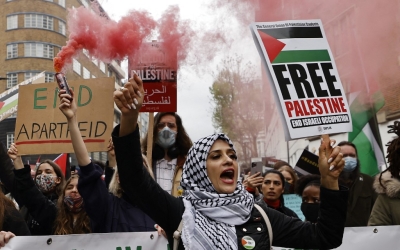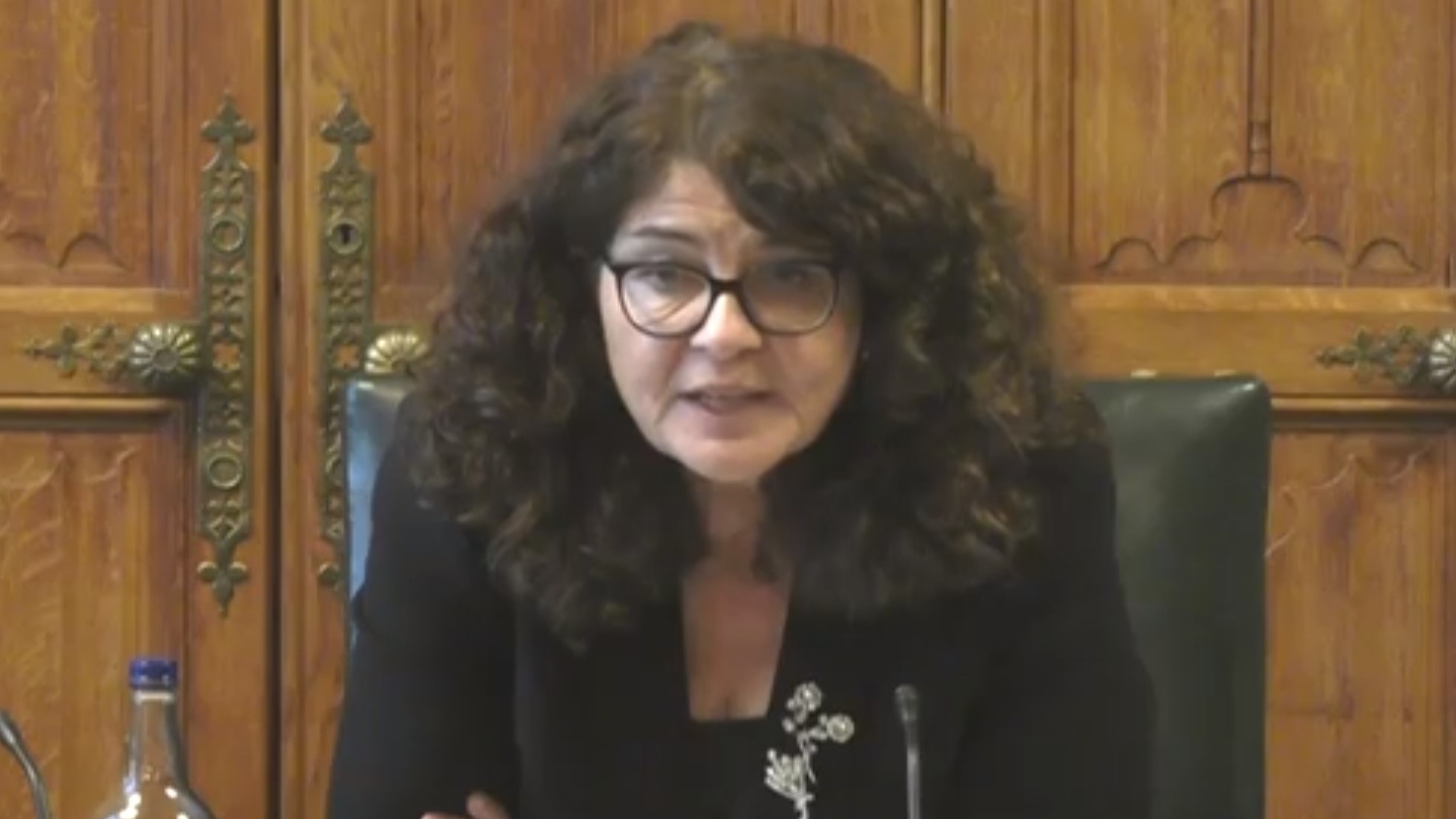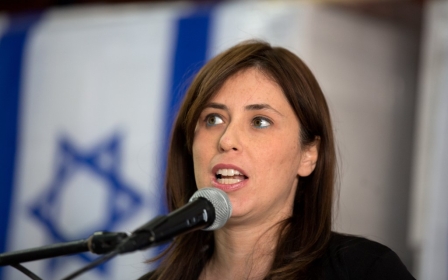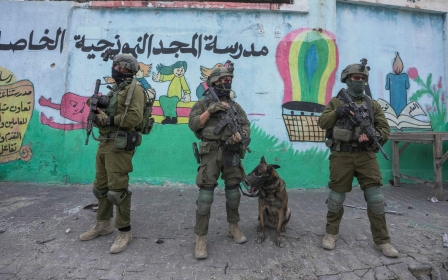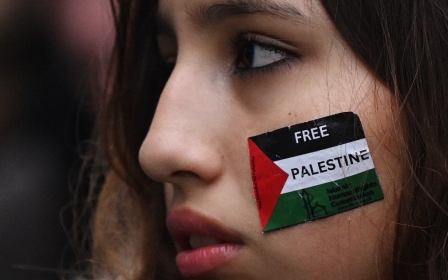MP chairing committee on policing of Palestine demos wanted protesters arrested
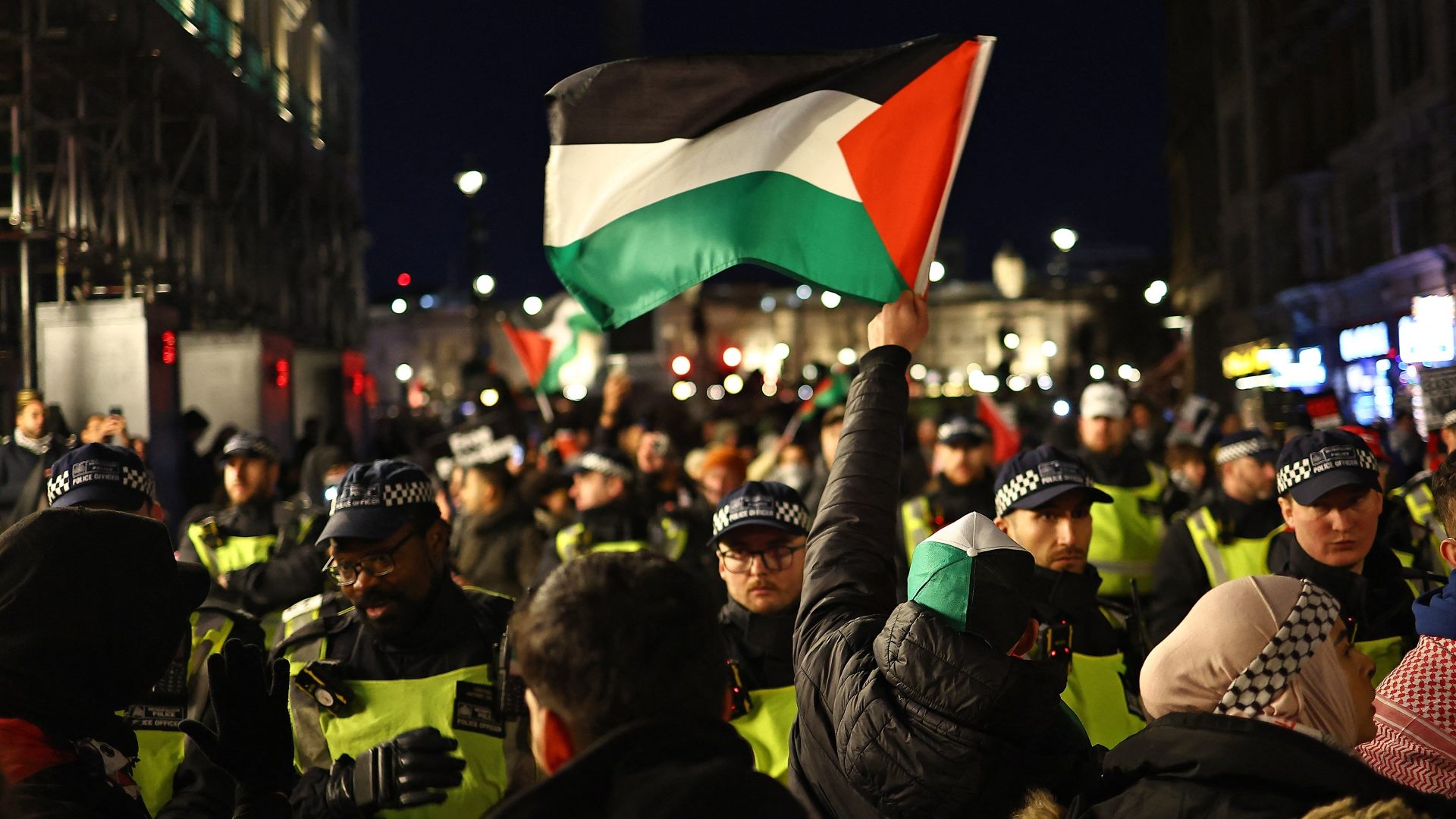
The chair of a parliamentary committee examining the policing of pro-Palestinian protests has previously called for people to be arrested for demonstrating against the Israeli ambassador.
Commenting on a protest by students at the London School of Economics in 2021 during which Tzipi Hotovely, Israel’s ambassador to the UK, was booed and jeered, Diana Johnson, a Labour MP, said: “This is absolutely appalling and I hope that arrests are made."
Johnson, who is a deputy chair of Labour Friends of Israel (LFI), made the comments in a tweet she posted with a retweet of an LFI tweet accusing protesters of “aggressive and intimidating behaviour”.
The protest was also condemned by the then-home secretary, Priti Patel, who said police had her “full backing in investigating this appalling incident”.
Police officers attended the protest and formed a cordon between protesters and Hotovely as she left an LSE building after delivering a lecture at a student debating society event. But the Metropolitan Police said that no arrests were made and no investigation was carried out.
New MEE newsletter: Jerusalem Dispatch
Sign up to get the latest insights and analysis on Israel-Palestine, alongside Turkey Unpacked and other MEE newsletters
In a letter in response to complaints by LSE staff about Hotovely’s visit, LSE’s school management committee affirmed students’ right to protest and said there was “no evidence whatsoever of protesters having broken the law”.
In a subsequent statement, academics and student leaders from several universities accused politicians of trying to undermine students’ right to protest, and accused Hotovely of a “well-documented history of Nakba denial”.
“It is incredibly disturbing and shameful that leading politicians of both main political parties have resorted to baseless smears and allying themselves with someone who holds violently racist, anti-Palestinian views,” the statement said.
Johnson’s comments about the LSE protest and her role in LFI appear to raise questions about whether she should have made a declaration of interest during a public session this week in which she questioned the organisers of pro-Palestine marches.
According to a guide to procedure for members of select committees, MPs with a “close connection to a particular subject” are expected to declare their interests in each session before questioning witnesses.
Follow Middle East Eye's live coverage for the latest on the Israel-Palestine war
A spokesperson for the Home Affairs Committee told MEE: "Diana Johnson made clear in questioning that the purpose of the session was to examine how recent protests were policed. It was not to examine the broader debate around issues in Israel/Palestine.”
On Wednesday, the committee heard evidence from Ben Jamal, the head of the Palestine Solidarity Campaign (PSC), Chris Nineham, the vice-chair of the Stop the War Coalition, and Yasmine Adam, the head of media and politics at the Muslim Association of Britain.
They told the committee that organisers had come under pressure from police to cancel a march on 11 November in central London that was eventually attended by hundreds of thousands of people and coincided with the weekend of Armistice events.
Ministers 'mobilised far right'
They said the protests, which have taken place regularly since Israel began its assault on Gaza following Hamas’s 7 October attacks in southern Israel, had been overwhelmingly peaceful and resulted in a very small number of arrests.
But they said government rhetoric surrounding the protests, including a description of them as “hate marches” by the former home secretary Suella Braverman, had put participants in danger and stoked Islamophobia.
Jamal said remarks by Braverman and Prime Minister Rishi Sunak that suggested the pro-Palestine march on 11 November posed a threat to the Cenotaph war memorial had “mobilised the far right”.
He commended police for protecting protesters from far-right activists who he accused of “intending to attack families and young children with knives and knuckledusters”.
But he criticised the increased use of public order powers to impose restrictions and conditions on the protests.
“We think the police are responding to political pressure that seeks to demonise these protests,” said Jamal.
Adam told the committee that government rhetoric had contributed to a surge in Islamophobia.
“I can give you instances of, for example, where we have been at protests and have had alcohol thrown at us. We have had far-right individuals spit at us,” she said.
“It is really the government’s unconditional support of Israel that has emboldened members of the far right.”
Nineham said he believed the police had put pressure on organisers to cancel the 11 November demonstration because they knew they did not possess the powers to stop it from taking place.
“I am very proud of everyone who held the line that day because I think we took a stand for democracy, the right to protest, and freedom of expression. It is very important that we did that,” he said.
But in a testy and argumentative session, the witnesses were interrupted by Johnson when they tried to discuss reasons why people were marching in support of Palestinians and the challenges they faced in terms of how the protests had been framed by pro-Israel critics.
When Nineham mentioned polls indicative of British public support for a ceasefire in Gaza, Johnson said: “I did say at the beginning that we were not going to get into the issues about Israel and Palestine.”
Jamal told the committee there was a “fundamental problem” of “a well-established and well-documented political project to conflate antisemitism with legitimate criticism of Israel’s violation of the rights of the Palestinian people”.
He suggested that an example were the calls for the pro-Palestinian “from the river to the sea” chant to be banned. He said the chant described the deprivation of rights across all of historic Palestine.
But Johnson intervened, telling him: “There are people who find that chant very offensive and believe that it is about the annihilation of the state of Israel."
Adam told MEE it was "concerning" that some members of the committee had not declared any possible conflicts of interest during the session.
'It is really the government’s unconditional support of Israel that has emboldened members of the far right'
- Yasmine Adam, Muslim Association of Britain
She said there had been a "stark difference" with the session that followed in which the committee heard from Dave Rich, director of policy at the Community Security Trust, which monitors antisemitism, and Gideon Falter, the chief executive of Campaign Against Antisemitism (CAA).
"Our attempt to convey the purpose of our demonstrations and the continued mischaracterisation of them was met with hostility by some members of the committee," she said.
"The panel that followed was allowed to make outrageous claims regarding our protests and even as far as to say that peaceful matches calling for peace should be banned."
Rich told the committee that Hamas’s attacks in southern Israel had left the Jewish community in the UK “traumatised and grief-stricken”.
He said a protest outside the Israeli embassy in London on 9 October had been organised “in language that seemed to welcome and endorse what Hamas had done”.
Falter said that in a poll conducted by CAA in response to the pro-Palestine protests more than two-thirds of Jews said they were currently less likely to show visible signs of their Judaism.
He said there was a “sense of grave disappointment and even betrayal within the Jewish community” towards the police for allowing the protests to continue.
The committee will next week hear from Robin Simcox, the UK’s commissioner for countering extremism, his predecessor in that role, Sara Khan, and John Woodcock, an independent member of the House of Lords who advises the Home Office on political violence and disruption.
Senior police officers are also due to give evidence.
Middle East Eye delivers independent and unrivalled coverage and analysis of the Middle East, North Africa and beyond. To learn more about republishing this content and the associated fees, please fill out this form. More about MEE can be found here.


